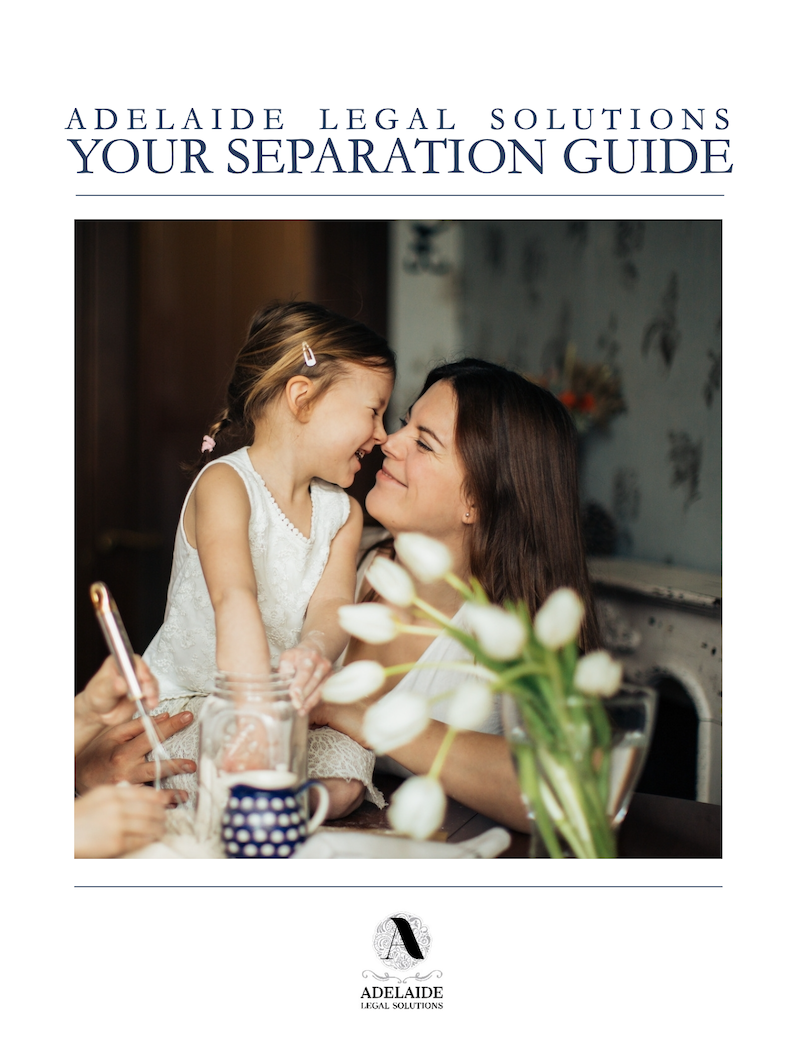Case Studies

Identifying what your next steps should be when a relationship breaks down can be confusing and very challenging.
Our informative guide will help to provide you some understanding of family law in Australia and suggest steps moving forward.
We offer a sensible and solution based approach to your legal issue
There is no legal problem too big or too small that we have not faced
Just one more step to get
a free copy of ‘Your Separation Guide‘
by Adelaide Legal Solutions in your inbox!